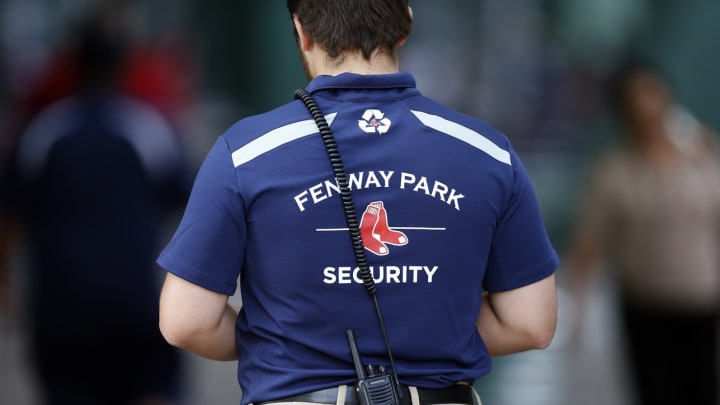How the Red Sox will try to enforce a lifetime ban on the fan who used a racial slur

The Boston Red Sox recently banned a fan from Fenway Park after they shouted a racial slur at another fan. The incident came soon after Baltimore Orioles star outfielder Adam Jones told reporters that a fan at Fenway Park shouted a racial remark at him.
“A disrespectful fan threw a bag of peanuts at me,” Jones toldUSA Today. “I was called the N-word a handful of times tonight. Thanks. Pretty awesome.”
Red Sox president John Henry and the team apologized to Jones and the Orioles. The following night, a fan was removed after allegedly making a racist comment to another fan about the national anthem singer.
"No player should have an object thrown at him on the playing field, nor be subjected to any kind of racism at Fenway Park," the team statement read. "The Red Sox have zero tolerance for such inexcusable behavior, and our entire organization and our fans are sickened by the conduct of an ignorant few. Such conduct should be reported immediately to Red Sox security, and any spectator behaving in this manner forfeits his/her right to remain in the ballpark, and may be subject to further action."
But how will the Red Sox actually go about enforcing their punishment? With thousands of fans entering baseball games every night, how does stadium security and the team police a lifetime ban against a fan?
• Jones believes simply kicking a player out of the stadium isn't enough and that a fine would possibly be more effective.
“It’s pathetic,” Jones later toldUSA Today. “It’s called a coward. What they need to do is that instead of kicking them out of the stadium, they need to fine them 10 grand, 20 grand, 30 grand. Something that really hurts somebody. Make them pay in full. And if they don’t, take it out of their check."
• Pedro Martinez riffs on Adam Jones, Chris Sale in return to Boston
Idiotic behavior has been at the root of stadium bans for years. One of the recent cases was Rafael Diaz, a fan clad in jean shorts, who rushed into the New York Mets' celebration following Johan Santana's no-hitter at Citi Field in 2012. Before he joined the dogpile, one of Citi Field's notorious fans was Craig Coakley, who streaked into second base in the Mets' new stadium's inaugural season. He still managed to wear a disguise and head into games after the ban was imposed. Last off-season, there was also the postseason manhunt for the Blue Jays fan who hurled a beer at an Orioles outfielder.
Fans who are banned sign off on the agreement that bars them from the stadium. With NFL games, teams can call for fan bans in other cities.
Trespassing charges could follow if they find themselves simply in attendance at games. Security officers are shown photos of the banned fans to keep an eye out but passing hordes of fans on a daily basis is not the most effective way of patrolling the premises. Facial recognition technology like the type used at casinos still could be years away from making its way to ballparks.
“In order to do facial recognition, first of all I have to have a good, clear picture (of the subject),” Dan Donovan, vice president of security and technology consulting for Guidepost Solutions, told FOX Sports. “Then I load the picture into my system, I’ve got a database of known offenders, and certain cameras, when set up correctly, are fixed on a focus area, and you can run facial recognition off of that and flag those people."
One of the other ways that a team can look for banned fans trying to get back in is through ticket purchases. A list of banned fans can be matched up the list of those who purchased tickets. The Red Sox announced on Monday that they've alerted the banned fan who used a racial slur that they've flagged their credit card.
• MLB Power Rankings: Astros, Yankees lead the AL edition
“We informed this person verbally and in writing, and we’ve also flagged their credit card from being able to purchase tickets from the organization moving forward,” Red Sox spokeswoman Zineb Curran told WEEI. “Key security personnel are aware of who the individual is. What we’re not doing is posting this person’s picture and name at every gate. That’s not something we’re doing. We know this isn’t a perfect or infallible system. And we recognize that enforcing it will be a difficult thing to do. But if the person is willing to take a risk and come back to the ballpark, there are actions that can be taken if they’re caught.”
Major League baseball is also reviewing fan-behavior policies and how to enforce bans. For now, there is no foolproof solution.
